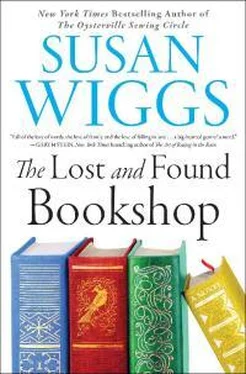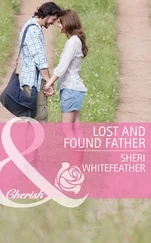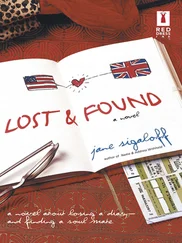“My angel mother saved my life,” Papa told him. “She lost her own in the process. During the great fire, she rushed to the waterfront and placed me aboard a barge. I remember seeing her bloody footprints, as she had no shoes to wear. The barge was filled with other children and elderly folk, all of us crying and panicked. My mother tied a green ribbon around my wrist and the same around her own. I didn’t understand why she loaded me aboard the barge and then rushed back into the city. Later, I always wondered if she went back to save her belongings, or perhaps another person. We saw rockets in the sky—the dynamite used by firefighters trying to stop the advance of the conflagration. City Hall was a shattered dome. The great buildings crumbled or burned to shells. Smoke was thicker than fog, and someone put a handkerchief over my nose and mouth, and my eyes stung. I recall very little after the barge was brought ashore. Impressions, really. Terror. Scattered milk cans everywhere. The dead being hauled away. Troops marching through the streets and shouting orders. Electric poles toppled every which way. Someone asked questions, leading me along by the hand. I told them my name and my mam’s name, but no one knew her. I did not know the place where I lived. All I knew was my name, and that I lived with my mam in the basement of a building with a winking sun on the roofline.
“I was taken to the great orphanage west of Van Ness. The massive building looked like a haunted castle, and since it was damaged by fire, we camped in tents. I waited and watched. I was told my name was posted on rolls around the city. So many children were joyously reunited with their families.
“But my mother never came. After the cataclysm, the unclaimed children were moved to the orphan asylum and later to the State Normal School. There was a terrible sadness. A loneliness. Those who cared for me were kind indeed, but I yearned to see my mam again, always praying she would come back, singing the songs she’d sung to me as a babe, and working so tirelessly at her drawing. She toiled upstairs from dawn until dusk, I recall, but at the end of the day, she always had time for stories and songs while she drew pictures of birds and animals, and of me.”
“Did you ever try to find out what happened to her?” Andrew once asked his father.
He still remembered the sad, haunted look on Papa’s face. “I did, when I was older. I combed the archives of the army relief operations, but I never saw her name. There were hundreds of ‘unidentified females,’ and I suppose one of them was her.” Papa looked so sad when he said this that Andrew never asked the question again.
Papa told him that the orphanage had been taken down for good in 1919, and of course by that time he was a man on his own, a veteran of the Great War with his life ahead of him.
“I grew up inspired by soldiers in the military,” Papa had said. “At the start of the war, the young men enlisted and it was an honorable thing, but due to my leg—I was born with a turned foot—I served as a medic.”
“Tell me how you found the shop again,” Andrew used to prod, enchanted by the tale. His father had no clear memory of his childhood home, only that it was a basement room with windows level with the street. He used to watch pedestrians’ boots passing by. And of course, after the disaster, it was impossible to recognize the neighborhood. There was one clue he recalled, and that turned out to be the key to finding home.
“I came back from the war with a bride—and a purpose,” Papa was proud of saying. He was a skilled healer and apothecary, and he eventually went looking to establish a place of business in the city. After the fires, San Francisco rebuilt with a vengeance, and it was full of bustling newness. Julius Harper found home by chance one day. He was walking along Perdita Street on an errand when he saw the winking sun symbol at the top of a derelict, abandoned building.
The sight awakened a slumbering memory in Papa. His mother told him when he was a very little boy that if he ever lost his way to look for the building with the winking sun. It was a distinctive feature on the facade, a sun with a face and one eye open, the other eye shut. In olden times many people didn’t know how to read, so they looked for symbols instead.
“Mam drew a picture of it for me,” Papa said. Years later, when he saw that symbol, he realized he was looking at the place where he had lived when he was a little boy.
He broke down weeping as memories thundered through him.
That day, Julius Harper found an opportunity. He acquired the neglected building and made it his home once again, laying claim to it by paying its back taxes. He and his bride repaired the place and founded the apothecary shop, the Perdita Drug Company.
* * *
“My father was a good man but a troubled man,” said Andrew, looking at the strange doctor as the past melted into the present. “He was so young when he went to war, an ambulance driver and medic. He always said that in war and in peace, it is the lives you save that give your life meaning. My mother, Inga, was a nurse, and they came together much like the love story in that Hemingway novel.
“I believe he spent much of his life searching for the lost pieces of himself that never seemed to materialize—the mother he scarcely remembered, the young man whose innocence was destroyed by a brutal war . . . When he was present, he loved my mother and me and he worked hard. Sometimes, though, he would fall silent and descend into dark places. But we were a happy family and he indulged my affinity for taking things apart—clocks and adding machines and scales, anything with moving parts. When I took over the business, that was the passion I followed.
“It’s probably mere sentiment, but when my father reclaimed the building as his own, he felt as if he had found his lost mother.”
Andrew tried to see his long-gone parents through the fog. He carefully folded the faded green ribbon and put it back into his billfold. “The Sunrose Building is part of my blood and bone. It is a repository of treasures seen and unseen. I need to stay in order to keep my mind from wandering away. It is the only way to keep the world intact.” He looked at Blythe—no, Natalie—whose eyes were misted with grief. “And so perhaps that is why you must understand—I will never leave it.”
* * *
When Natalie returned to work at Pinnacle Fine Wines, no one at the firm appeared to know or care that the world had changed irrevocably.
A few of her coworkers made sympathetic noises. For the most part, they avoided her. It was probably awkward being around her. When someone suffered a loss so shocking and so enormous, it was impossible to know what to say.
Saying anything at all probably seemed risky to acquaintances at work. They were likely worried they might set off a storm of hysterical tears and then they’d have to figure out how to deal with the breakdown. And at the end of the day, there was nothing that could be said that would help.
She disliked being viewed as a wounded bird. Now that she knew how her coworkers felt about her, she sensed an even deeper ambivalence with her job situation. Amplified by grief, the discontent rang through every moment of the day—the meetings, the filings, the projections, the account maintenance. Her weekends were shot, since she had to make trips to the city to look after her grandfather. Between visits, she pictured him alone, reading, missing his daughter, drowning in memories of his father and his mysterious past.
Her usual laser focus at work was lacking. She frequently caught herself ruminating on the dilemma of what to do about the shop. And her grandfather. And her mother’s debt. And the old building that had fallen into disrepair. Cleo and Bertie had agreed to keep an eye on things and on Grandy, but the arrangement was temporary. There was no long-term plan in place.
Читать дальше












